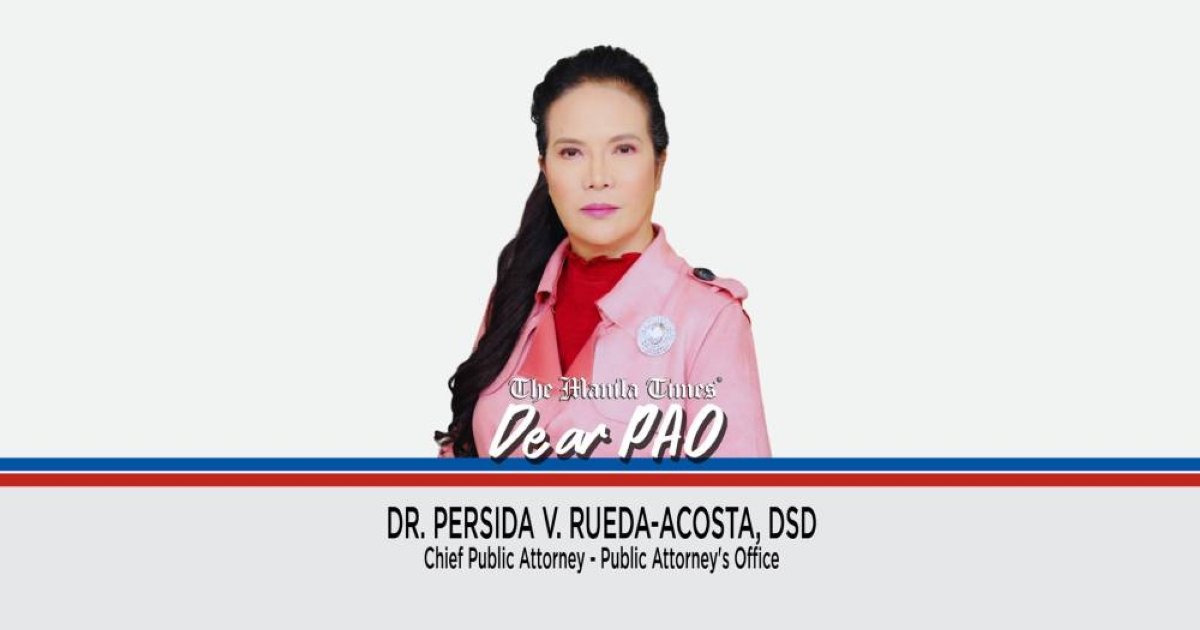Dear PAO,
My lease agreement with Lina is about to expire. She told me the lease may be renewed if the rent is increased to 200 percent. I offered a reasonable 50 percent increase, but Lina declined, and she demanded that I vacate the property after the expiration of our lease, or she would file an ejectment case against me. I am now worried and have asked some relatives what to do. One suggested that I avail myself of consignation and let the court decide the fair rental rate of said property. Is consignation the appropriate remedy to settle the issue of the reasonableness of the rent?
Aubrey
Dear Aubrey,
Consignation is a remedy that may be taken by the debtor when the creditor refuses to accept payment without just cause. This is specifically provided under Article 1276 of the New Civil Code of the Philippines:

“If the creditor to whom tender of payment has been made refuses without just cause to accept it, the debtor shall be released from responsibility by the consignation of the thing or sum due.
“Consignation alone shall produce the same effect in the following cases:
“(1) When the creditor is absent or unknown, or does not appear at the place of payment;
“(2) When he is incapacitated to receive the payment at the time it is due;
“(3) When, without just cause, he refuses to give a receipt;
“(4) When two or more persons claim the same right to collect;
“(5) When the title of the obligation has been lost.”
“On the other hand, ejectment may be availed by the lessor who was unlawfully deprived of possession, and this is found under Section 1, Rule 70 of the 1997 Revised Rules of Court, as amended:
“Subject to the provisions of the next succeeding section, a person deprived of the possession of any land or building by force, intimidation, threat, strategy, or stealth, or a lessor, vendor, vendee, or other person against whom the possession of any land or building is unlawfully withheld after the expiration or termination of the right to hold possession, by virtue of any contract, express or implied, or the legal representatives or assigns of any such lessor, vendor, vendee, or other person, may, at any time within one (1) year after such unlawful deprivation or withholding of possession, bring an action in the proper Municipal Trial Court against the person or persons unlawfully withholding or depriving of possession, or any person or persons claiming under them, for the restitution of such possession, together with damages and costs.”
Clearly, consignation is not the appropriate legal remedy when the issue pertains to fair rent after the expiration of the lease agreement. The Supreme Court, speaking through Associate Justice Alfredo Benjamin Caguioa, was explicit in its pronouncement in the case of Privatization and Management Office v. Firestone Ceramic, Inc., GR 214741, Jan. 22, 2024:
“Consignation in court under Art. 1176, is not the proper proceedings to determine the relation between landlord and tenant, the period of life of the lease or tenancy, the reasonableness of the amount of rental, the right of tenant to keep the premises against the will of the landlord, etc. These questions should be decided in a case of ejectment or detainer… under the provisions of Rule 72 of the Rules of Court. In a case of ejectment, the landlord claims either that the lease has ended or been terminated or that the lessee has forfeited his right as such because of his failure to pay the rents as agreed upon or because he failed or refused to pay the new rentals fixed and demanded by the lessor. The lessee in his turn may put up the defense that according to law, the rental fixed and demanded of him is unreasonable, exorbitant [sic] and illegal…. We repeat that all these questions should be submitted and decided in a case of ejectment and cannot be decided in a case of consignation.”
Applying the above-quoted decision in your situation, the issue of the reasonableness of the rent or refusal to pay the new rentals can be decided in an ejectment case. The same issue cannot be resolved in consignation because the latter applies to a situation where there is a debtor-creditor relationship and the latter refuses to receive payment without just cause.
We hope that we were able to answer your queries. Please be reminded that this advice is based solely on the facts you have narrated and our appreciation of the same. Our opinion may vary when other facts are changed or elaborated.
Editor’s note: Dear PAO is a daily column of the Public Attorney’s Office. Questions for Chief Acosta may be sent to [email protected]










